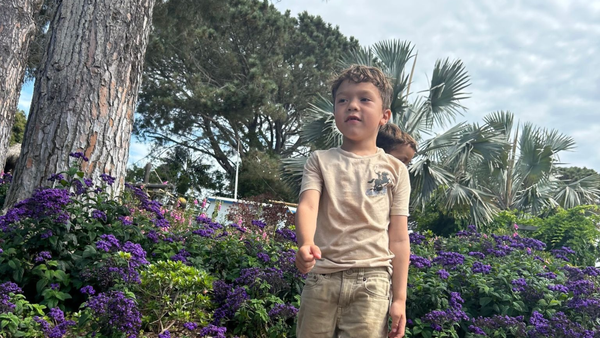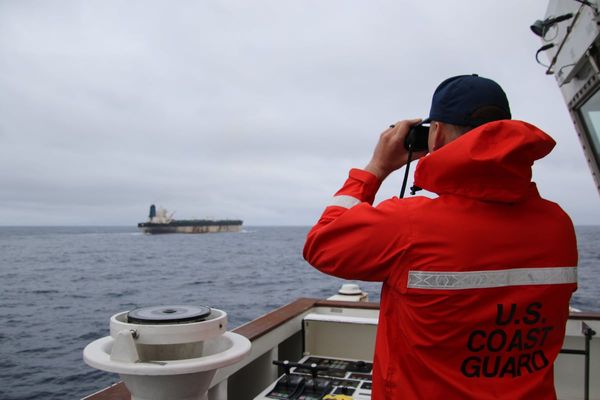
Despite the number of children and young people in mental health crises reaching record levels, official figures show it’s becoming harder for many of them to access support. According to analysis of NHS data by the charity YoungMinds, urgent referrals of under-18s to mental health crisis teams are 46% higher in 2023 than they were the year before, with thousands more on the waiting list to access non-urgent intervention. Events such as the Covid-19 pandemic haven’t helped – 83% of young people with mental health needs agree the pandemic made their mental health worse.
Meeting such demand will never be straightforward. But one team trying to do things differently is Cornwall’s multi-agency rapid response service (MARRS). The service is part of the gweres tus yowynk (GTY) umbrella, which is Cornish for “helping young people”. MARRS combines health and social care practitioners (who would usually work in two separate strands) to support children as young as eight, and young people up to the age of 18 for up to 12 weeks. It’s a 30-strong crisis team that works in shifts so support is available 24 hours a day, 365 days a year.
One father whose daughter was supported by the service says: “Previously it seemed no one was talking to each other and I had to constantly repeat our circumstances time and time again, which is extremely difficult … [Services] let my daughter down with a mixture of not following up appointments or not putting in support where needed. Since MARRS has been involved, the agencies all talk to each other and action plans are put in place very quickly. Everything is followed up … [it’s] a game changer and has given me more confidence in the system.”
Kate Wilson, service lead for GTY, says bridging the gap between social care and child and adolescent mental health services (CAMHS) has been talked about for many years, “but there’s always been a challenge in terms of the two parts of the system coming together. By recruiting a new social work team, we’re able to develop the skills and knowledge to work with our most complex young people. [Our focus is] on providing more specialist help for children and families at an earlier stage.”
Despite the service being less than a year old, it’s already having an impact. Wilson remembers one young woman who was referred to the service after having thoughts about ending her life. She was offered regular risk reviews and support to manage and regulate her emotions, and started functional family therapy. A youth worker was able to work with health clinicians to help her build her emotional literacy, and her mum felt more able to cope and understand her behaviour. “We don’t have a magic wand but she’s going missing much less frequently, there’s less talk of her wanting to harm herself, particularly after arguments at home, and she’s attending school more consistently,” Wilson says. “I think if we hadn’t been able to offer such integrated support, the outcome might have been quite different.”

Of course, there have been challenges to making this new model work. The CAMHS and social care teams operate on two separate systems, and legacy technology hasn’t made it easy to integrate the two functions. Moving members of the MARRS team into the same office has helped, says Graham Garside, head of service for CAMHS acute services. And there have been other service changes that had to be made for the team to work more closely together.
“Key for me was that we had young people participate right at the beginning. In the early stages, we went round to youth clubs and spoke to people already in the service,” he says. “They thought it was great that social care and health were joining together. They told us they didn’t want to be retelling their stories to lots of different people. They didn’t want referrals to a specialist over here, or a specialist over there. They wanted us to do the work in terms of building the professional network around them. And they wanted the name to be discreet – they didn’t want it to be called a crisis team or anything like that.”
One of the managers of MARRS, Karen O’Neill, who leads the social worker side of the team, says the fact that it’s a newly recruited team has made a big difference. “Everybody applied to work in this role and is very committed to joint intervention and sharing ideas. We’re all really inspired and excited by it. You shouldn’t underestimate the complexity of this work – these young people have lots of challenges – but everyone feels supported by each other. It’s a big culture change across the whole service.”
That collaborative ethos is also having a positive impact on the other organisations and agencies that GYT works with, Wilson says. “We’re more open to overcoming the challenges in the wider systems of working together. It’s had a knock-on effect on the work we do with the police, for example. I’m really proud of that impact on the wider systems, not just in Cornwall but also regionally and nationally. It feels like we’re trailblazing.”

And while Cornwall is perhaps best known for its beautiful coastline, other children’s services around the country have already been getting in touch to learn about MARRS. “Being able to share that learning and talk about the benefits of working in a more integrated way is amazing,” Garside says. “For Cornwall to be leading something new and different is nice to see. We’re still at the beginning of the journey and it’s going to take time. But in just 12 months, it certainly feels that we’ve had a better approach in trying to keep families together and we’ve seen a reduction in presentations to A&E and admissions to our inpatient unit.”
To anyone else interested in this way of working, Wilson says: “Invest in those relationships at an early stage, get to know each other’s business and make sure you’ve got strong strategic leadership. That’s helped us think outside the box. It sometimes feels impossible to overcome some of the barriers but you’ve got to spot the opportunities and flexibilities within what you’ve got and take a few risks.”
• In the UK and Ireland, Samaritans can be contacted on freephone 116 123, or email jo@samaritans.org or jo@samaritans.ie. In the US, you can call or text the National Suicide Prevention Lifeline on 988, chat on 988lifeline.org, or text HOME to 741741 to connect with a crisis counselor. In Australia, the crisis support service Lifeline is 13 11 14. Other international helplines can be found at befrienders.org
Find out more about Cornwall Council’s social work teams, the jobs they offer and how you could become part of their success story







